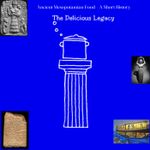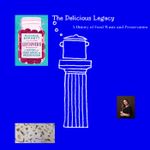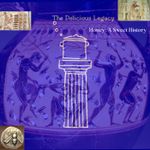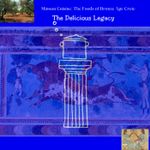Pork as medicine in the ancient and medieval world
I've been eternally fascinated with ancient medicine and all the different remedies and potions that medicinal writes were advising to cure all sorts of maladies!
But one "cure" -literally- salted, cured, ham and bacon it was really above all others! Tarikhos -aka salted meat- and any other pork cut was considered light and and nutritious meat.
I wanted to find out how it was used and why!
The theory of maintaining or regaining one’s health through a lifestyle of moderation and balance was called “dietetics.” More than in our days, diet played a role in preventing and curing diseases, and in fact it was one of the main areas of study at medieval medical schools. Not surprisingly, foodstuffs and dishes were seen in much the same way as simple and compound drugs, and like them were classified in accordance with the theory of the four humors, by which was meant a theory of the four bodily fluids. To find out the history of this early scientific theory we must go back to the sixth century B.C., to such Greek philosophers as Anaximenes, Heraclitus, and Thales.
It was Hippocrates, the famous Greek physician, and his followers who around 400 B.C. added to the four qualities of Zeno the four bodily fluids blood, phlegm, black bile, and yellow bile, and formulated a prototype of what came to be known as “humoral theory.”
One of the few remnants of humoral theory that has survived into the twenty-first century; when we describe a person’s temperament today as sanguine, choleric, melancholic, or phlegmatic, we are, in effect, referring to their dominant bodily fluid or humor: blood (sanguis), yellow bile (cholé), black bile (melaina cholé), and phlegm. The Greek physician who was the most prolific medical writer and who influenced medieval medicine more than any other was Galen of Pergamon of the second century A.D. In selecting and harmonizing elements of the humoral theory he found in Plato, Aristotle, Hippocrates, and others, he created a system that was capable of describing the world as a whole, and all inanimate and animate objects in it.
By Byzantine times, the theory of humours was accepted without question by doctors and court alike and even amongst more common people. Foods had to be judged and balanced for their effects on the bodily humours, month by month, hour by hour, and according to individual constitution.
Ancient medicals writers, physicians and philosophers mentioned on this podcast:
Oribasius: https://en.wikipedia.org/wiki/Oribasius
Aetius of Amida: https://peoplepill.com/people/aetius-of-amida
Alexander of Tralles: https://www.penn.museum/sites/expedition/the-life-and-times-of-alexander-of-tralles/
Paul Of Aegina: https://en.wikipedia.org/wiki/Paul_of_Aegina
Anthimus: https://en.wikipedia.org/wiki/Anthimus_(physician)
Many thanks to Pavlos Kapralos for the music!
You can find more of Pavlos's work on his YouTube channel: https://www.youtube.com/channel/UCzgAonk4-uVhXXjKSF-Nz1A
Thanks for listening!
The Delicious Legacy
Support this show http://supporter.acast.com/the-delicious-legacy.
If you love to time-travel through food and history why not join us at https://plus.acast.com/s/the-delicious-legacy.
Hosted on Acast. See acast.com/privacy for more information.









